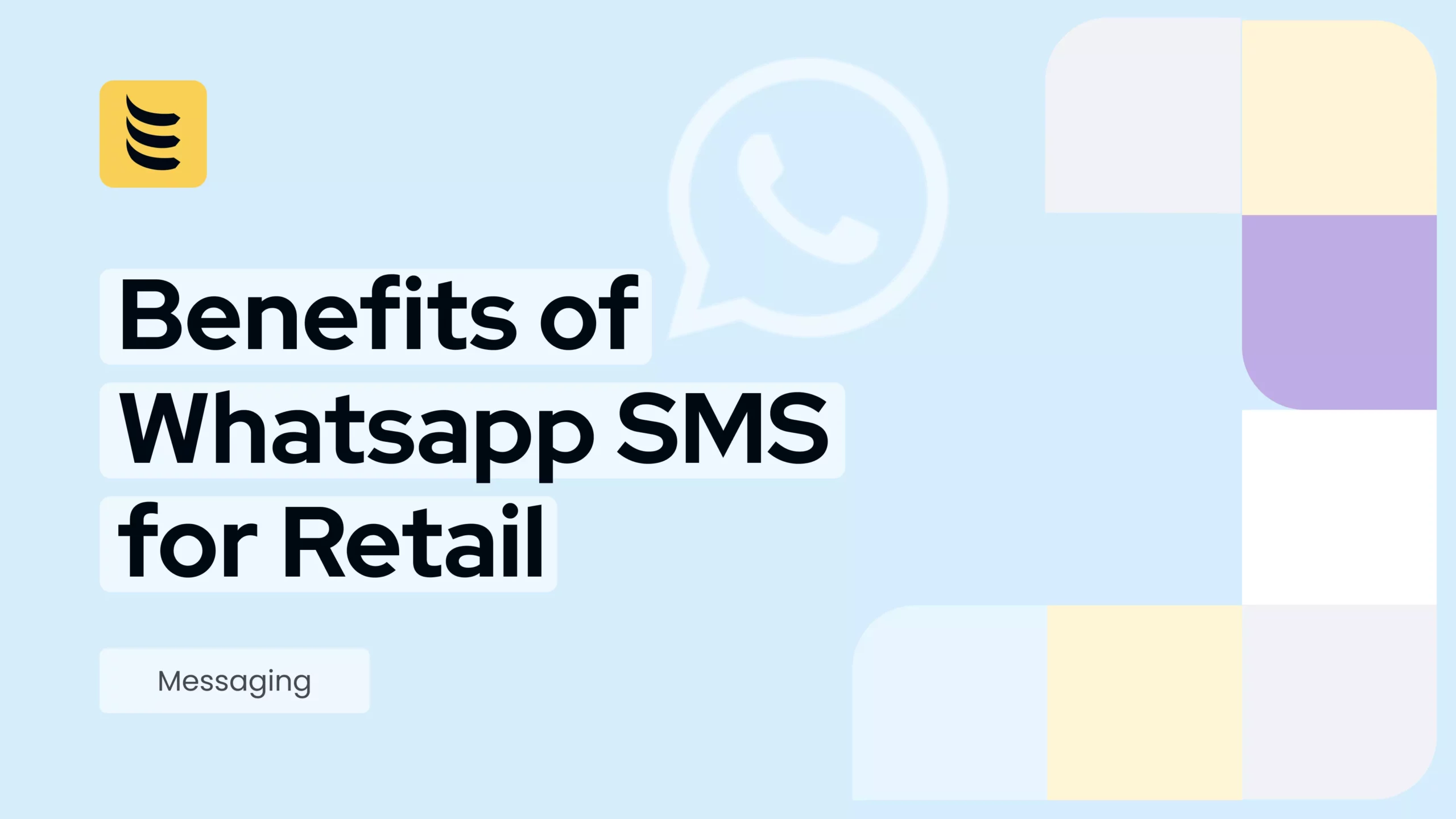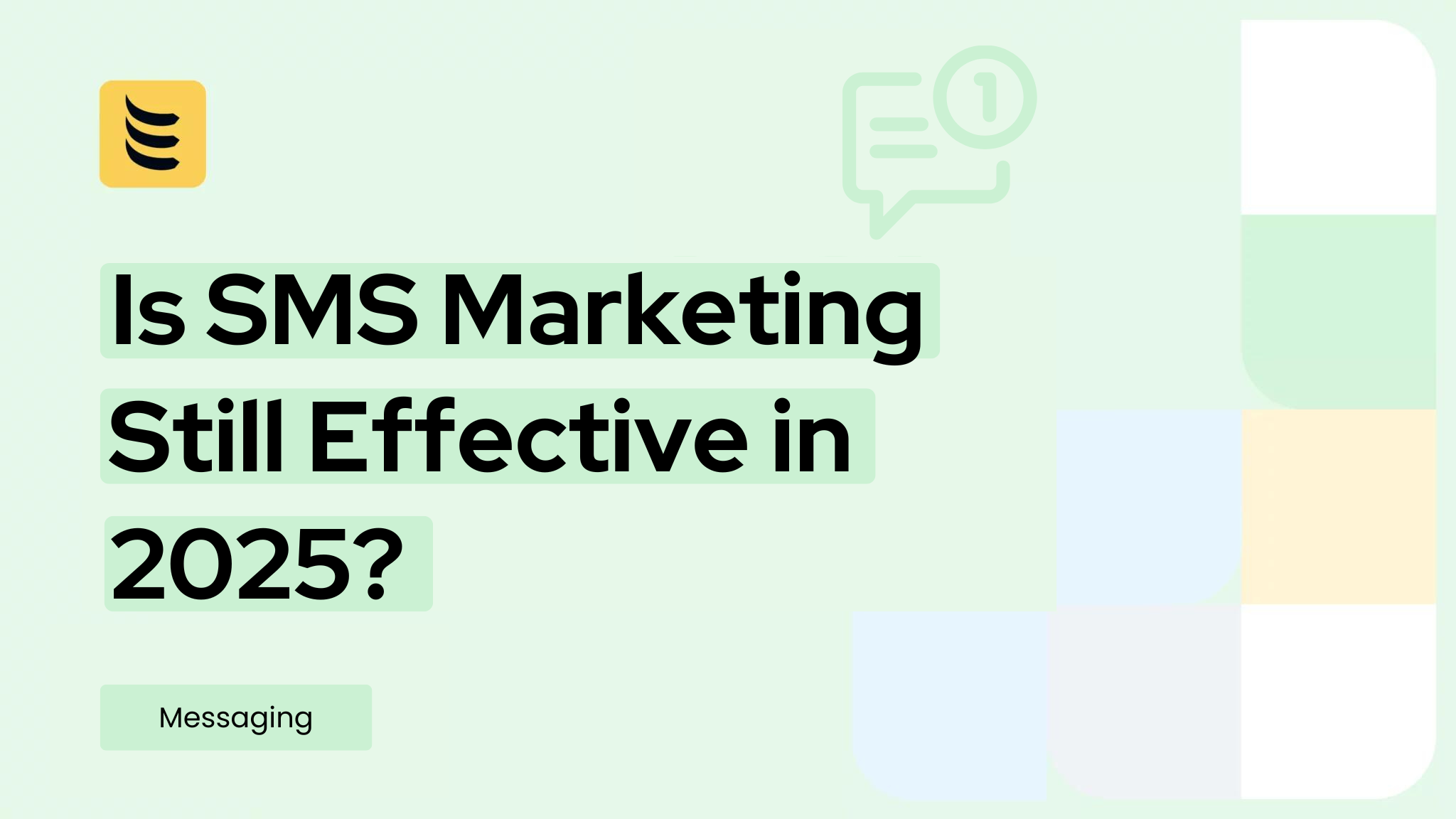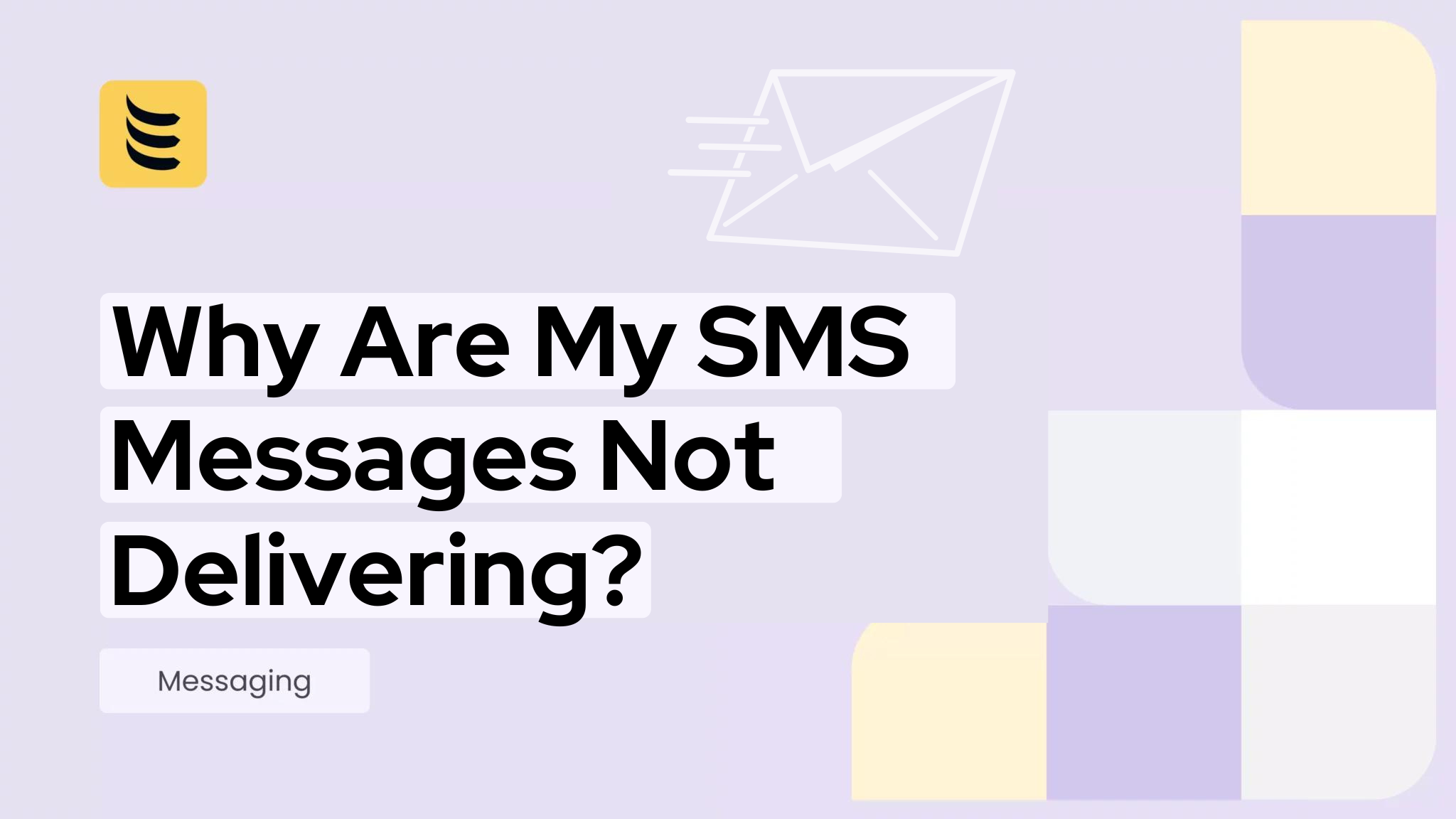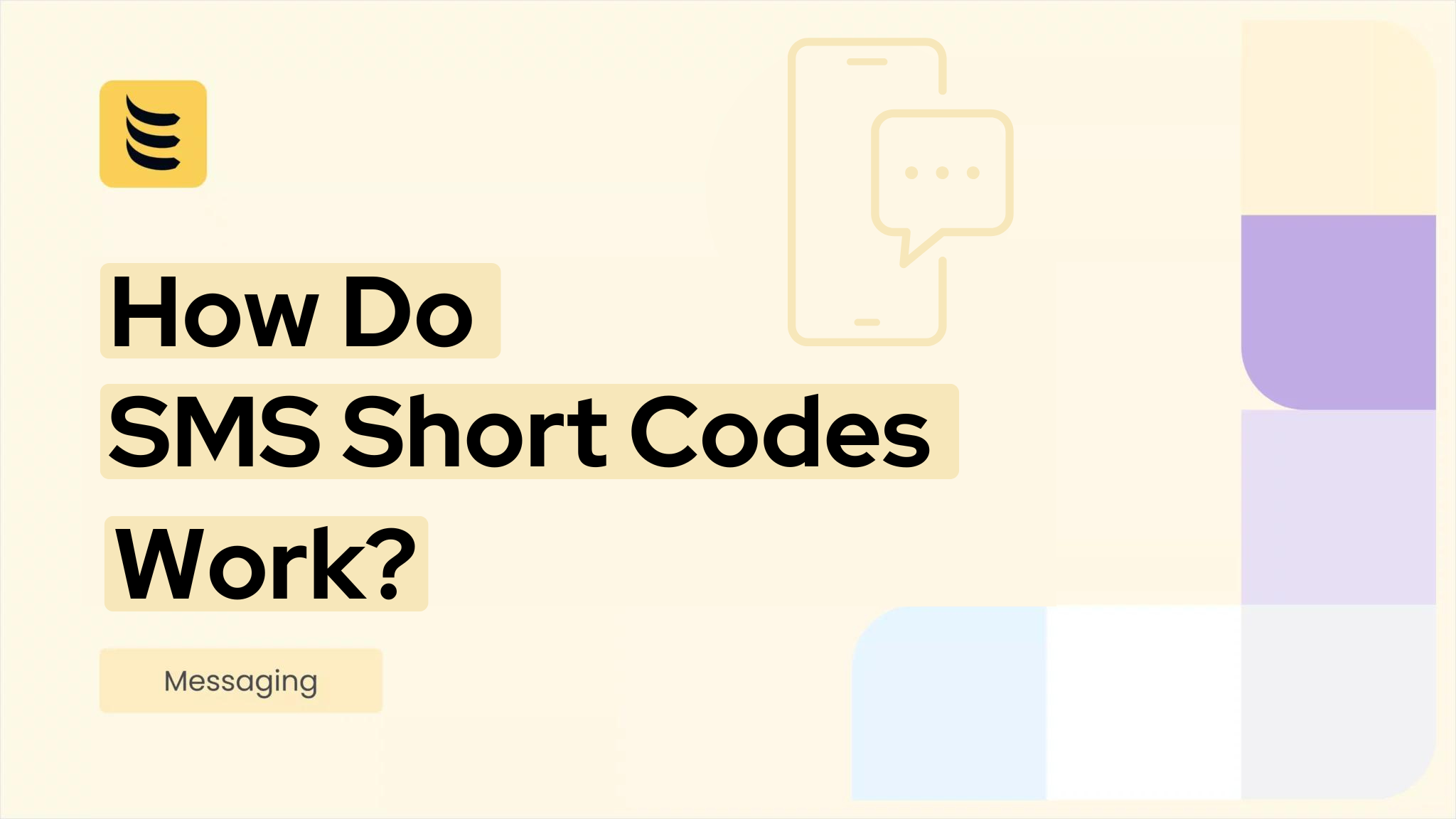Why Retailers Need a Great Messaging Platform
For retailers, the struggle is always on to attract and retain customers in a highly competitive and increasingly global market. To complicate this challenge, today’s consumers have higher than ever expectations of the brands that they choose to do business with.
According to a recent customer experience (CX) trends report by Zendesk, more than 60% of customers now expect companies to meet all of their needs. If those needs are not met, 61% of customers would leave for a competitor after just one negative experience.
Some 81% of people claim that receiving good customer service makes them more likely to make another purchase from a brand. And significantly, 90% of customers are willing to spend more when companies provide personalized customer services.

However, providing this level of personal customer satisfaction and personalization still presents a major hurdle for most brands. Research by Salesforce reveals that, while 88% of buyers say that a great customer experience matters as much as a company’s products or services, 56% of consumers say that most companies still treat them like numbers.
For retailers in the current market, the personal touch really matters. Salesforce maintains that 73% of customers expect companies to understand their unique needs and expectations. So how can brands ensure this? A customer experience study by Sinch suggests that 89% of consumers want two-way conversations with brands through messaging channels and apps.
One messaging platform that enables retail organizations to conduct such two-way conversations is WhatsApp Business.
Form succesfully sent ;)
What is WhatsApp Business?
WhatsApp Business is a free to download app designed to help smaller scale enterprises (typically, “micro” businesses employing one to six people) communicate more effectively with their customers.
For larger concerns, the WhatsApp Business Platform provides a step up for businesses that need to manage more support requests than the WhatsApp Business standalone app can accommodate. It makes it possible to integrate the WhatsApp API (Application Programming Interface) into your existing tech stack for more complex business needs.
An Application Programming Interface or API is a set of protocols and tools that enables software applications to exchange information and resources programmatically. In this way, an API allows developers to integrate specific functionality into their own applications, websites, or systems, facilitating business automation.
The WhatsApp Business API is designed for enterprise organizations, big commercial concerns, and small to medium-sized businesses (SMBs) that need to field a higher volume of customer requests. The API enables organizations to integrate WhatsApp business with their Customer Relationship Management (CRM) systems, to automate processes and messages through their existing tech stack, and to assign repetitive tasks to algorithms and bots.
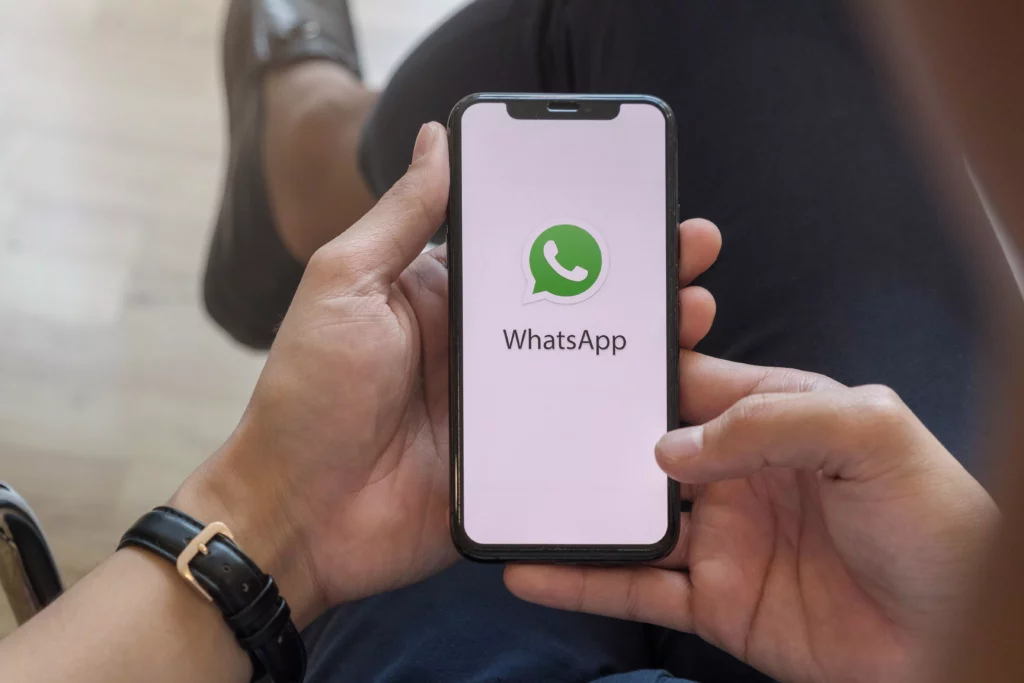
Benefits of WhatsApp Messaging for Retail Businesses
Beyond simple messaging, WhatsApp Business provides a number of benefits to retail organizations, while facilitating the personalized service and one-to-one conversations so important to today’s consumers. These advantages include the following:
1. Broadcast Messaging
With the broadcast messaging capability of WhatsApp Business API, organizations can issue communications to multiple customers at the same time. As a retailer, you can use this facility to send out announcements, updates, or promotional offers to your customers en masse.
One of the limitations of the smaller scale WhatsApp Business app is that broadcast messaging is limited to 256 contacts at a time. For retailers with a larger customer base, this can seriously hamper your ability to communicate effectively with your target audience. What’s more, when using WhatsApp Business software, your customers must have your company’s phone number saved in their phone’s address book, in order. to receive a broadcast message.
However, with the WhatsApp Business API, it’s possible for retailers to send broadcast messages to unlimited contacts simultaneously. This makes it easy to launch mass promotional campaigns, and to keep a large customer base informed about the latest products or services that you have to offer.
2. Personalized Customer Interactions
With personalized experiences high on the consumer agenda, WhatsApp messaging enables retailers to engage their customers in real-time, two-way conversations that provide greater efficiency and convenience for them, and come with a distinctly personal touch. Engaging customers in this kind of dialogue makes it easier for your organization to effectively answer questions and resolve issues, provide updated information to your target markets, and invite feedback that can help in improving your offerings and customer support.

WhatsApp Business features help to extend the scope of this outreach. Tools like Quick Replies empower retailers to provide instant answers to Frequently Asked Questions (FAQs). Organizations can create customized Greeting Messages to welcome new consumers, or to welcome customers back after 14 days of inactivity. You can also use Labels to organize your chats and contacts according to various criteria such as demographic or transaction history.
3. Time and Resource-Saving Automation
Using the WhatsApp Business API, you can configure automated responses to Frequently Asked Questions and recurring issues, easing the burden on your customer support staff. You can also schedule messages or promotions to go out at optimal times, to automate your marketing efforts. For example, you might automate reminders for customers who’ve abandoned their shopping carts, giving them the final nudge they may need to complete a purchase.
The WhatsApp Business API also integrates Artificial Intelligence (AI) powered chatbots into its messaging platform. You can use these to manage routine queries, provide instant responses, and provide customers with 24/7 support. AI chatbots with machine learning algorithms can understand customer behavior, personalize individual responses, and learn from past interactions to improve future transactions.
4. Secure Transactions
The WhatsApp messaging platform in noteworthy for its use of end-to-end encryption on all communications. This security mechanism ensures that only the sender and receiver can access messages, calls, images, and videos shared using the platform. Providing this level of security helps build customer trust, in an age when personal data privacy is hugely important to consumers.
Retailers wishing to take their security credentials to the next level can apply for a green check mark – a WhatsApp badge of distinction issued to verified business accounts that meet certain standards. This mark assures customers that they are interacting with a credible organization which they can trust.
5. Customization Options for Better Branding
WhatsApp Business provides a range of customization and rich media options to help retailers distinguish their brands and better communicate their unique selling points to consumers. These include message templates, a catalog design feature, and the ability to incorporate audio and visual elements into your broadcasts and interactions. You can use these tools to design a communications framework that mirrors your brand’s unique voice and image.
6. Ability to Scale
The WhatsApp Business API is designed to handle high-volume messaging, making it the ideal platform for retailers looking to scale. Organizations wishing to add to the functionality available from the base messaging platform also have the option to partner with a WhatsApp Business Service Provider. These Meta-approved solution providers can bring additional tools and functions to the table, such as advanced automation capabilities, specialist analytics, and augmented support services.
7. Global Reach with Local Impact
The WhatsApp messaging platform currently hosts more than 2.5 billion active users worldwide, spanning some 180 countries. This includes high density and emerging markets such as India, Brazil, Argentina, South Africa, Malaysia, Colombia, Turkey, Spain, Indonesia, Nigeria, and Kenya. The platform is also gaining in popularity across France, Germany, the USA, and Italy.
For retailers, this user base represents an enormous potential market – one that’s using a common platform with a simple and familiar interface. Retail organizations can therefore use WhatsApp to engage consumers in interactions that feel local and personal, even when they are taking place halfway across the globe.
8. Multi-Agent Support
WhatsApp Business API includes a shared team inbox feature, which enables multiple support team members to access and manage customer conversations at the same time. This can lead to quicker solutions, faster issue response times, and greater collaboration between customer service agents. Multi-agent support also minimizes or eliminates the risk of missing or overlooking vital customer messages.
9. Enhanced Analytics
The WhatsApp Business API provides retailers with access to detailed metrics and analytics for marketing communications. These include delivery, read, and reply rates for sent messages.
As a retailer, the insights you glean from analyzing such metrics can help in measuring the success of your marketing campaigns, gaining a greater understanding of customer behavior, and assist in making informed decisions that enhance your marketing efforts.
10. Cost-Effective Business Communications
Using the WhatsApp Business messaging platform can provide a more cost-effective business communication solution for retailers, when compared with traditional media like email, phone calls, or commercial SMS. WhatsApp helps in avoiding international call and messaging charges, providing a more affordable channel for retail businesses to connect with customers globally. What’s more, the high-end features of the platform (such as sending multimedia files and documents) are available at no additional cost.

11. Integration with Your Business Systems
The essence of API technology is its ability to allow diverse systems to communicate and exchange information and resources with each other. The WhatsApp Business API is no exception. Retailers can use the API to seamlessly integrate with existing business tools and applications such as a Customer Relationship Management (CRM) system, help desk software, or marketing automation tools.
Customers typically use an average of nine touchpoints to engage with companies. As a retailer, you can use API integration to provide a unified business management environment across all the channels that customers use to engage with your brand.
For example, with the IDT Express SMS API, you can easily schedule SMS, MMS, or WhatsApp messages to be sent at a specific date and time in the future with a simple API call. With IDT’s reliable and scalable Notifications API, you can create highly personalized SMS notifications that cater to any use case with unmatched flexibility. In this way, you can enhance your sales and foster customer loyalty by leveraging impactful SMS advertising targeted at your customer base.
To find out more about how the IDT Express SMS API and IDT Express Bulk SMS can integrate with your WhatsApp Business marketing efforts and take your retail business to the next level, book a demo.
